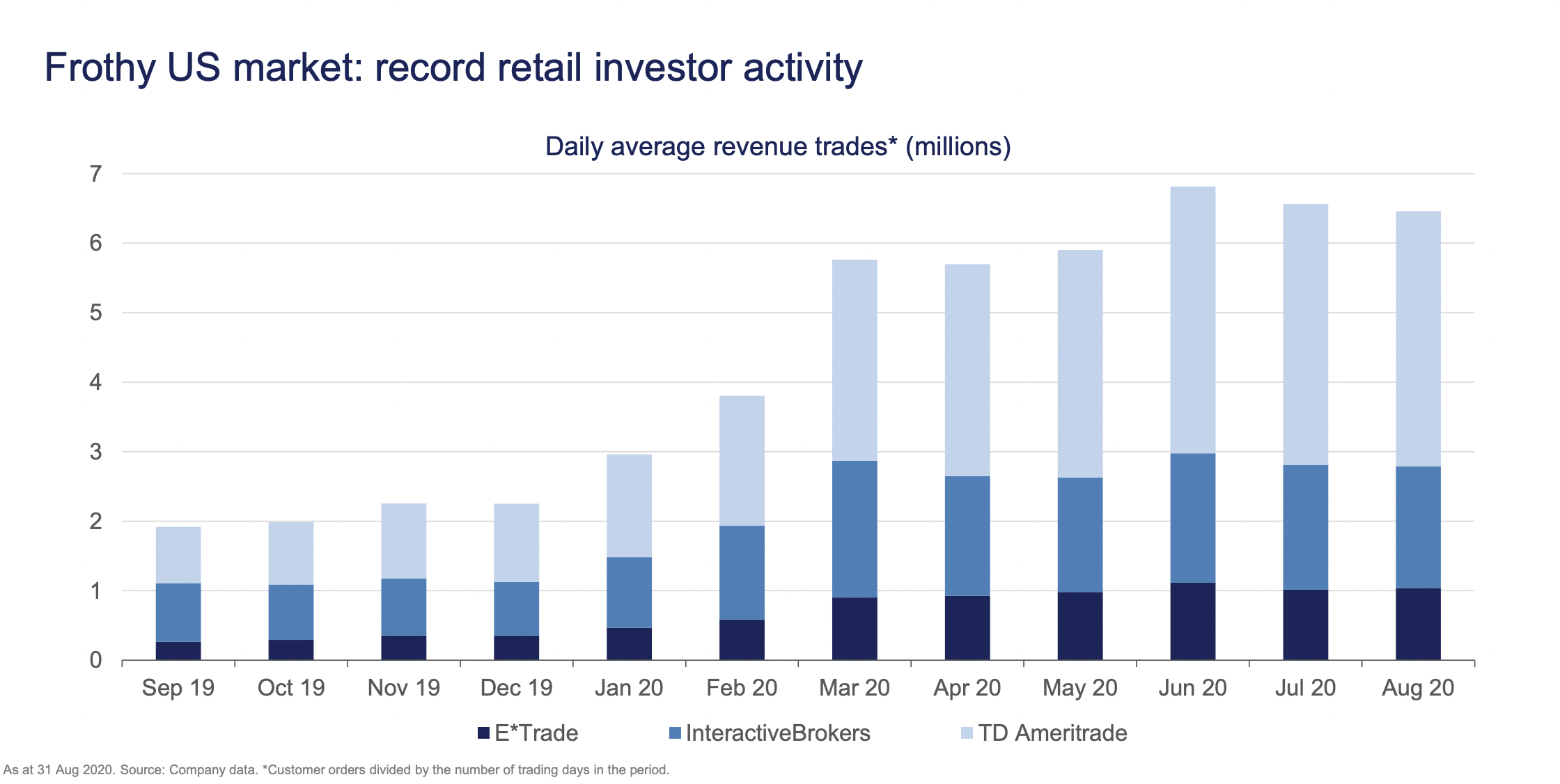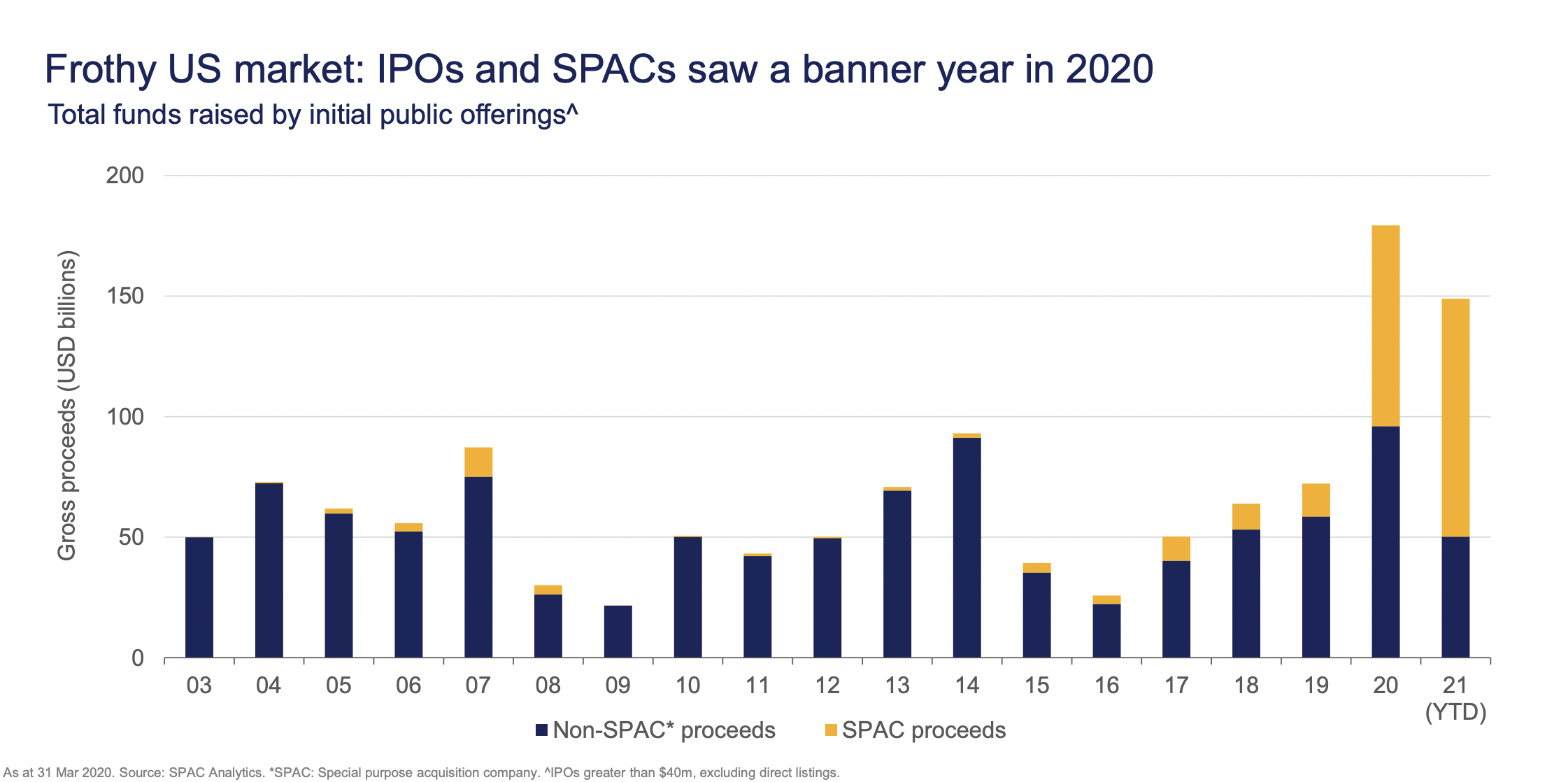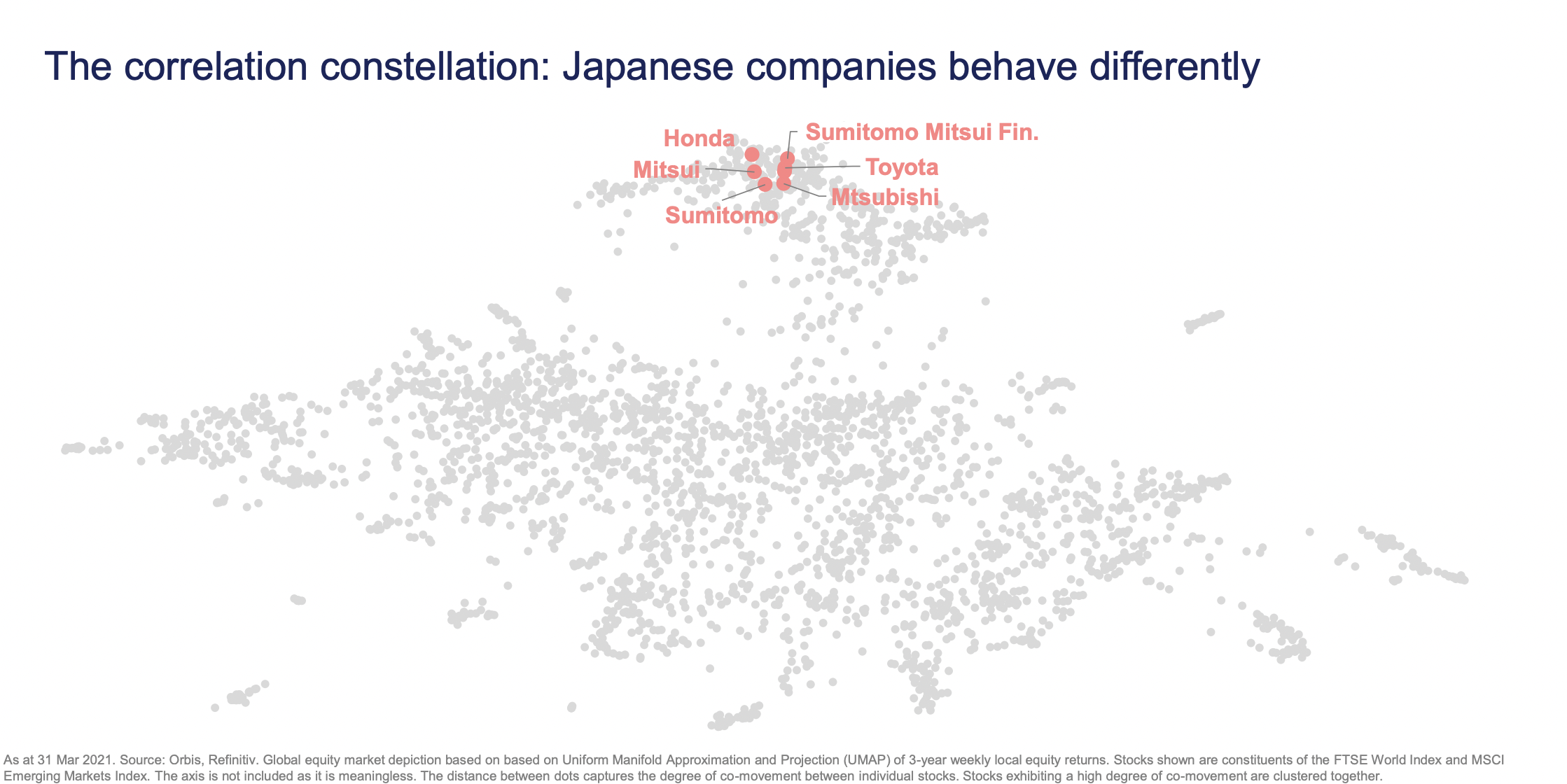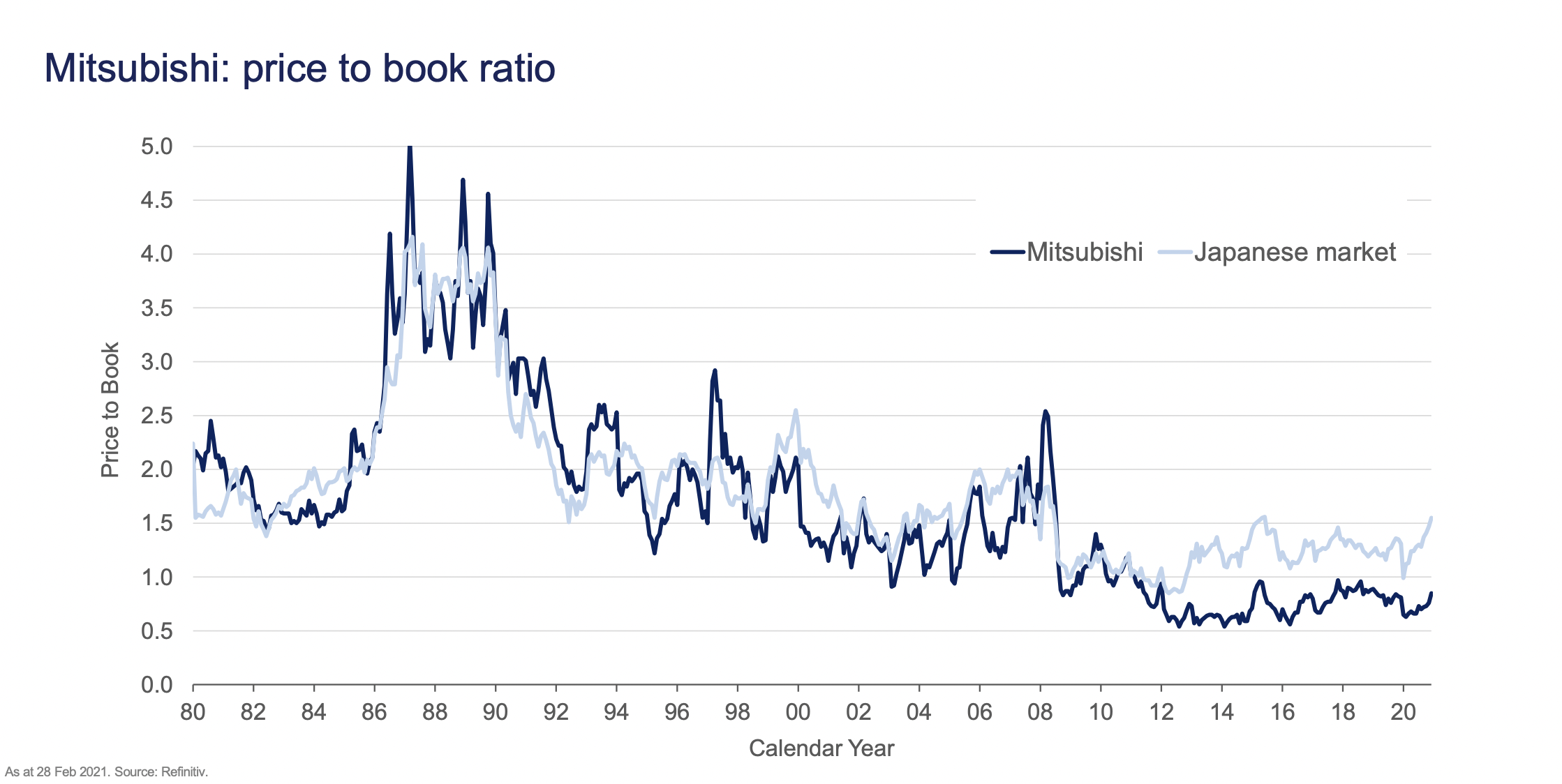A stock with a contrarian approach to the downside

Livewire Markets
With the rise of speculative asset classes, risk-taking retail investors and the threat of inflation looming over markets, the last place I expected to find a safe haven for investors was Japan. But this was exactly the thesis that Dr Graeme Shaw, director at Orbis, put to investors.
Over the past decade (or two), Japan hasn't earned its share of attention in Asian markets. Shaw admitted "Japan used to be a byword for poor governance" but this has changed of late. Instead, the resilience of the Yen and the small valuation gap could make Japan an ideal inflation hedge, and there's one stock, in particular, that makes an interesting case.
A frothy market
At a recent Allan Gray - Orbis Investment Forum, Shaw presented to an audience of hungry investors about the strategy for the global equities fund against a backdrop of a frothy market.
Shaw dove decidedly into a discussion about the bubble building and how it's undoubtedly difficult to ignore the excess liquidity in markets today.
According to Shaw, half of the active traders in the market today have less than one years' professional experience.

Source: Allan Gray/ Orbis
In the first quarter 2021, the amount (in US dollars) of IPO fund-raising almost reached the same levels as the entirety of calendar-year 2020. In a single quarter, IPOs raised nearly a full year's worth of funds. This was in no small way correlated to the rise of SPACs as an investment vehicle.
"One of the classic signs of a speculative stock market is when you see a large number of new listings," he said.

Source: Allan Gray/ Orbis.
He also noted the signals from a dramatic price rise in cryptocurrencies, like Bitcoin and Dogecoin.
Three reasons to consider investing in Japan
So, liquidity is flowing into speculative asset classes, but what does that have to do with a value-based fund manager?
The answer is debt and inflation. The aforementioned liquidity is partly driven by record levels of government debt.
"Whenever debt has risen this much to these sorts of levels (and so quickly), on average those sorts of periods tend to be followed by periods of elevated inflation, as governments use inflation as a way of putting down their debt burden," he said.
#1 The valuation gap is wider
"If you look at the gap between value stocks and growth stocks, the valuation gap is even wider in Japan than it is globally," said Shaw.
There are more value stocks with low valuations. This means that you're not paying as much for tomorrow's earnings.
"I think the Japanese portfolio today trades at less than net assets on about 13 times next year's earnings, and 10 times on we think all earnings are compared to 20 times in the index," he said.
#2 Stable downside protection in the Yen
"We expect history will be firmly on the side of the Yen and it will start to strengthen against the Aussie dollar in a stock market sell-off," he said.
Shaw's research has tracked the Yen against the Aussie dollar since the AUD first floated. His research showed that throughout all 13 large stock market declines of this period, Yen gained strength against the AU dollar 11 of the 13 times.
#3 Diversification
The Japanese stock market moves differently. The Nikkei price movements cluster together away from the other exchanges of the world.
A way to illustrate this, said Shaw, is through Mitsubishi.
"You might as well think of it as being like the Japanese economy," he said.
And for good reason.

Source: Allan Gray / Orbis.
Mitsubishi case study: By the numbers...
- 6% dividend yield with an above 40% payout ratio
- Trades at only 10-times earnings
- Downside protection in the currency
Mitsubishi is "a conglomerate with its fingers in many, many pies", said Shaw. It has holdings and partnerships across a wide range of sectors from energy to resources and of course automobiles.
"The company is benefitting from the kind of structural reforms that have been sweeping Japan," he said.

Source: Allan Gray/ Orbis.
In 2013, a valuation gap opened up between Mitsubishi and the rest of the market, and it currently trades at about 40% discount with solid dividend yields.
Conclusion
It plays neatly into the handbook of Allan Gray-Orbis' contrarian strategy. It's a "think outside the box" strategy to keep yields and returns in the long-term, while protecting from any short term downside.
"I think it would come down to going through company-by-company and looking at how much pricing power they have," he said.
It's well placed to beat the market in an inflationary environment, where interest rate hikes start hurting over-valued stocks.
"We've got a reasonable quality and pricing power, so (the stocks) would probably cope with inflation going on. They'll just pass on this cost to their underlying customers," he said.
Related articles


Never miss an insight
Enjoy this wire? Hit the ‘like’ button to let us know. Stay up to date with my content by hitting the ‘follow’ button below and you’ll be notified every time I post a wire. Not already a Livewire member? Sign up today to get free access to investment ideas and strategies from Australia’s leading investors.
Mia Kwok was a guest of Allan Gray.
2 topics

Mia Kwok is a former content editor at Livewire Markets. Mia has extensive experience in media and communications for business, financial services and policy. Mia has written for and edited several business and finance publications, such as...
Expertise

Mia Kwok is a former content editor at Livewire Markets. Mia has extensive experience in media and communications for business, financial services and policy. Mia has written for and edited several business and finance publications, such as...
